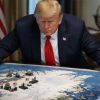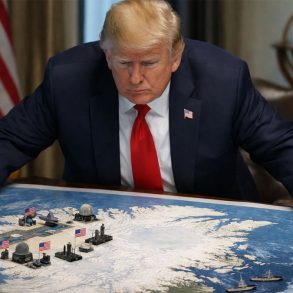Merz Confirms Major Policy Shift in Berlin and Beyond
Germany’s new chancellor, Friedrich Merz, has made a decisive announcement that signals a new chapter in Ukraine’s war effort. In remarks delivered at the WDR Europaforum on May 26, Merz declared that Germany and its top Western allies will no longer impose range restrictions on the weapons they send to Ukraine. This means that for the first time, Ukraine is now officially allowed to use foreign-supplied weapons to strike military targets inside Russian territory.
“There are no longer any range restrictions for weapons that have been delivered to Ukraine,” Merz said. “Neither by the British, nor by the French, nor by us, and not by the Americans either.”
This shift opens the door for Ukraine to hit Russian military infrastructure across the border. Merz explained the change by saying, “Ukraine can also defend itself by, for example, attacking military positions in Russia. Until a while ago, it couldn’t. It can now.” He called this capability “long-range fire” and added that Ukraine was being supplied with weapons “that attack military targets in the hinterland.”
A Turn from Scholz’s Approach
This announcement represents a clear departure from the policy of former German Chancellor Olaf Scholz. Under Scholz, Germany refused to send long-range Taurus cruise missiles to Ukraine, citing fears of escalation with Russia. At the time, the German government also published detailed lists of weapons it was sending to Ukraine.
Merz has taken a different stance on both counts. As opposition leader, he supported the idea of sending Taurus missiles, which have a range of up to 500 kilometers and can strike deep into enemy territory. While he has not confirmed whether Germany will now deliver these missiles, many observers believe it is likely. The change in policy appears to align Germany more closely with France and the United Kingdom, which have already sent long-range SCALP and Storm Shadow cruise missiles to Ukraine. The United States has also provided ATACMS missiles and recently lifted its own restrictions on how they could be used.
In addition to changing the range policy, Merz has introduced what he calls “strategic ambiguity.” His administration will no longer provide public details on the exact weapons being delivered to Ukraine. He argued that Russian President Vladimir Putin, a fluent German speaker, should not be able to learn Germany’s military intentions simply by watching the news. “We were giving away too much to Moscow,” Merz said. “Strategic ambiguity is the better approach.”
Kremlin Reaction and International Concerns
The Kremlin reacted strongly to Merz’s announcement. Russian government spokesman Dmitry Peskov said that removing the range restrictions would be “quite dangerous” and said it would “run contrary to our efforts to reach a political settlement.” Russian Foreign Minister Sergei Lavrov also rejected a potential peace negotiation hosted by the Vatican, saying it would be “inelegant” for the Catholic Church to mediate between two Orthodox countries.
Despite those warnings, Merz defended the decision. “Only by lifting the range restrictions is Ukraine in a position to defend itself,” he said. He also emphasized that the difference in tactics between the two sides is clear. “Whilst Ukraine has military goals in its sights, Russia is targeting civilians,” Merz said, pointing to Russian attacks on “cities, kindergartens, hospitals, and care homes.”
He added that the latest decision comes after Russia launched what has been called the largest drone assault on Ukraine since the beginning of the war.
The Role of Long-Range Missiles
If Germany delivers its Taurus cruise missiles, Ukraine would gain a powerful new tool. The Taurus can strike targets more than 300 miles away with high precision and is designed to penetrate bunkers, bridges, and supply hubs. President Volodymyr Zelenskyy has openly called for the Taurus system, saying he has “more than hope” that Germany will follow through.
So far, Ukraine has used other long-range systems to disrupt Russian operations in occupied Ukrainian territory and near the border. Now, with the range limits lifted, Ukraine can strike deeper into Russia than ever before, potentially threatening command centers and logistical bases far from the front lines.
Until now, Germany had not delivered any weapons to Ukraine with a range beyond 70 kilometers. That may soon change if the Taurus system is added to the arsenal.
Ukraine’s Diplomatic Push and Growing Pressure on Merz
Zelenskyy is expected to visit Berlin soon to meet with Merz and other German leaders. The visit comes amid rising pressure within Germany’s own parliament to take a clearer position on the war. Merz has faced criticism from both the right and the left for either being too cautious or not doing enough to push for peace.
Merz responded to those criticisms during the forum, saying, “After the last three weeks, no one can seriously accuse us of not having exhausted all available diplomatic means.” He said that Ukraine’s allies have “done everything” short of “raising a white flag.” Referring to the Vatican’s failed offer to mediate peace talks, Merz said, “If even an offer to meet at the Vatican does not get [Putin’s] approval, then we must be prepared for this war to last longer than we all wish or can imagine.”
A New Phase in the War
With no clear path to a ceasefire and Russia rejecting diplomatic overtures, the lifting of range restrictions marks a new phase in Ukraine’s military campaign. It reflects a broader Western consensus that Ukraine should not be artificially restrained while defending itself. It also underscores a growing belief among Ukraine’s allies that deterring Russia now requires more aggressive tools.
Whether Germany will officially deliver Taurus missiles remains to be seen, but Merz’s message is clear. Ukraine will be allowed to take the war to Russian military targets, with full Western support. The next steps may be more quiet than before, but they will be no less significant.
NP Editor: The EU is dying to have a bigger say in the Russia Ukraine war, since Trump has been hogging all of the negotiations. Will this move the needle with Russia? We believe it will certainly irritate Putin, but it’s a side show. Unless the EU stands up and takes the lead, they will continue to play second fiddle.








